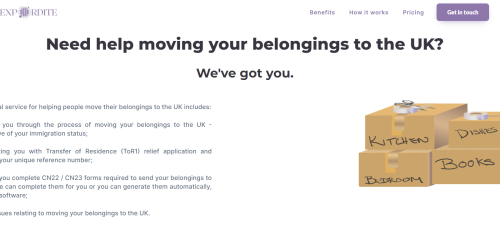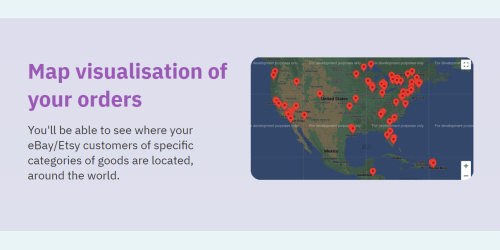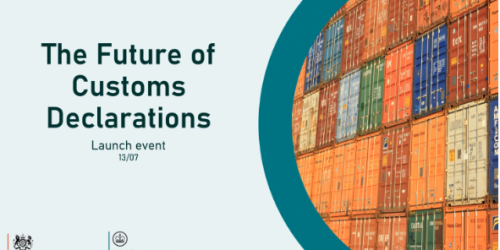International Trade Week 2022 Recap – Part 1
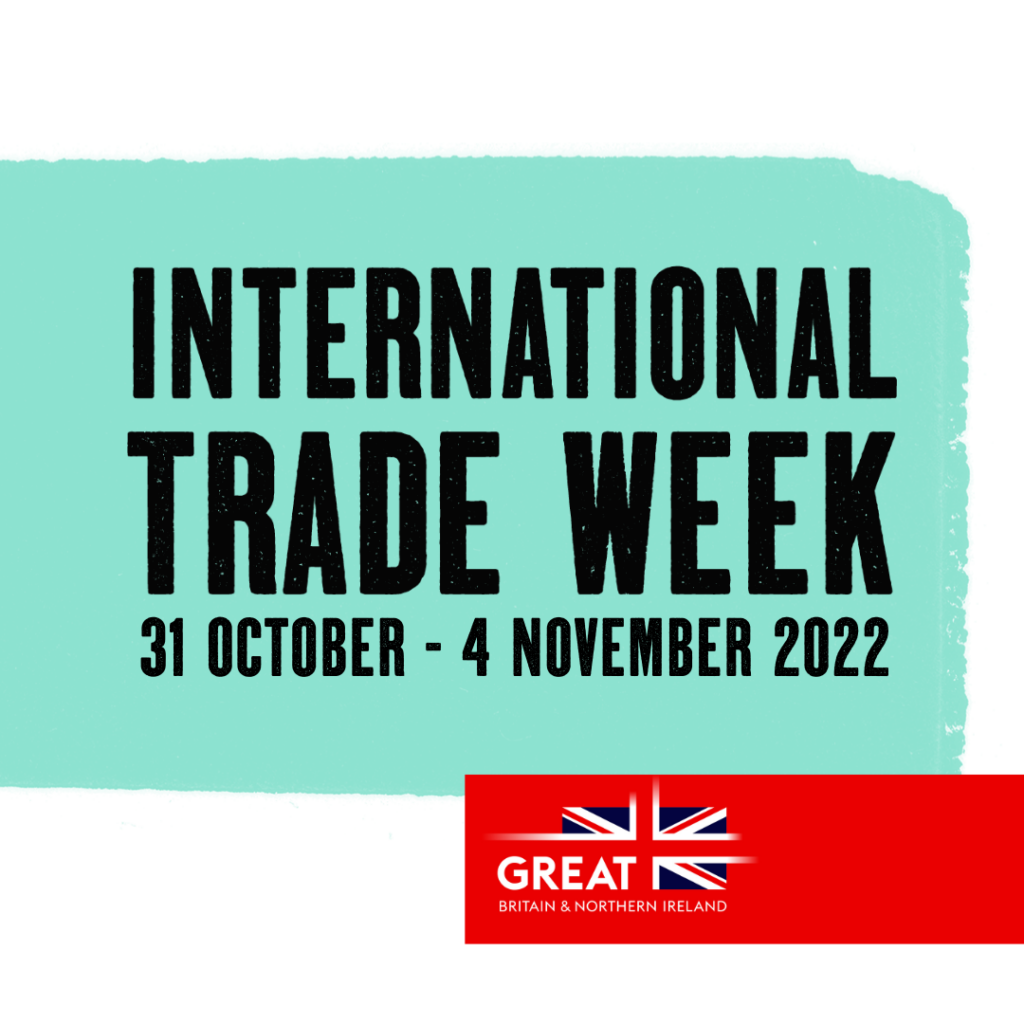
This article contains affiliate links.
Did you get a chance to attend an International Trade Week event last week?
I managed to attend several sessions with awesome DIT and guest experts. You can read my insights on my Twitter here under the #tradeweek hashtag or on LinkedIn.
It kicked off with an event by the London Chamber of Commerce and Industry (LCCI) on Monday on navigating the complexities of international trade. As you know, Expordite is all about making those easier for you! In this email, I’ll cover the key takeaways from that event, with insights from other events to follow shortly.
These are the takeaways:
When engaging in international trade, your impact matters.
Make sure it’s positive!
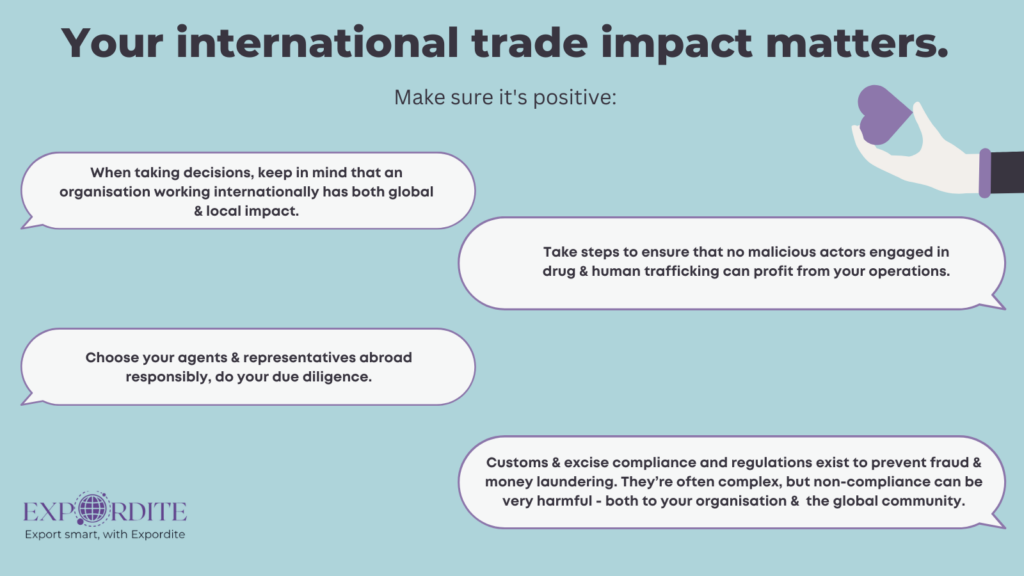
- When taking decisions, keep in mind that an organisation operating internationally has a global and a local impact;
- Take steps to ensure that no malicious actors engaged in drug and human trafficking can profit from your operations;
- Choose your agents and representatives locally and abroad responsibly;
- Customs and excise compliance and regulations are in place to prevent fraud and money laundering. They’re often complex, but the consequences of non-compliance can be very harmful – both to your organisation and the global community.
When breaking into exports, many SMEs often don’t realise how much financing they would need.
The UK Export Finance is a government body under DIT that can help small businesses with finance and insurance.
If you’re struggling to finance your exports or want some advice and support, you can contact them here. Remember to discuss this with your accountant (click here if you don’t have one yet!)
The UK has 71 trade agreements currently in place!*
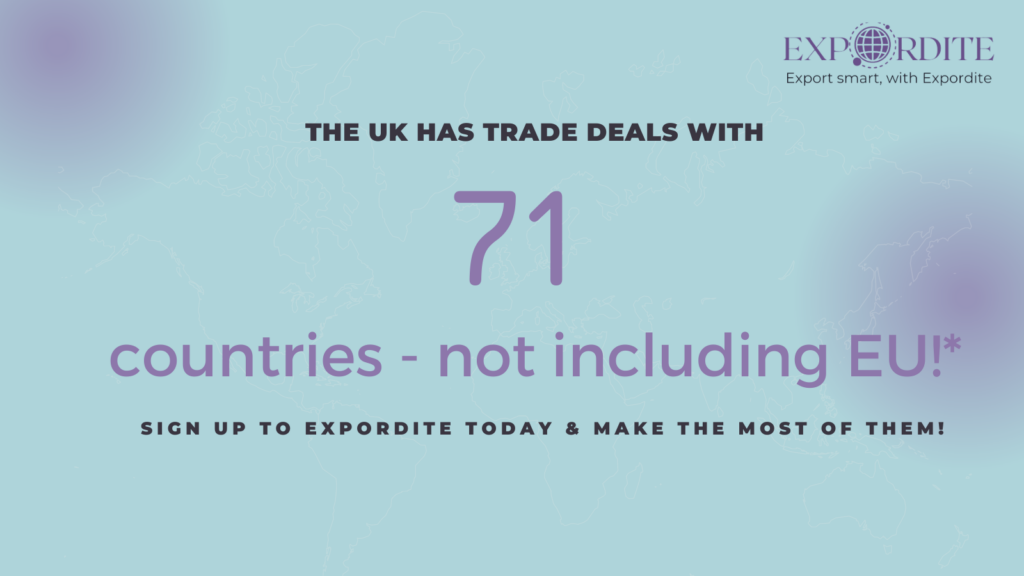
That’s 71 potential markets for you!
Unsure where to start making the most of them? Sign up to Expordite today!
*Not including EU.
The LCCI once again confirmed the importance of keeping records of export documentation for HMRC audits
Missed my post on that?
Exporting may seem expensive – and at times, it is.
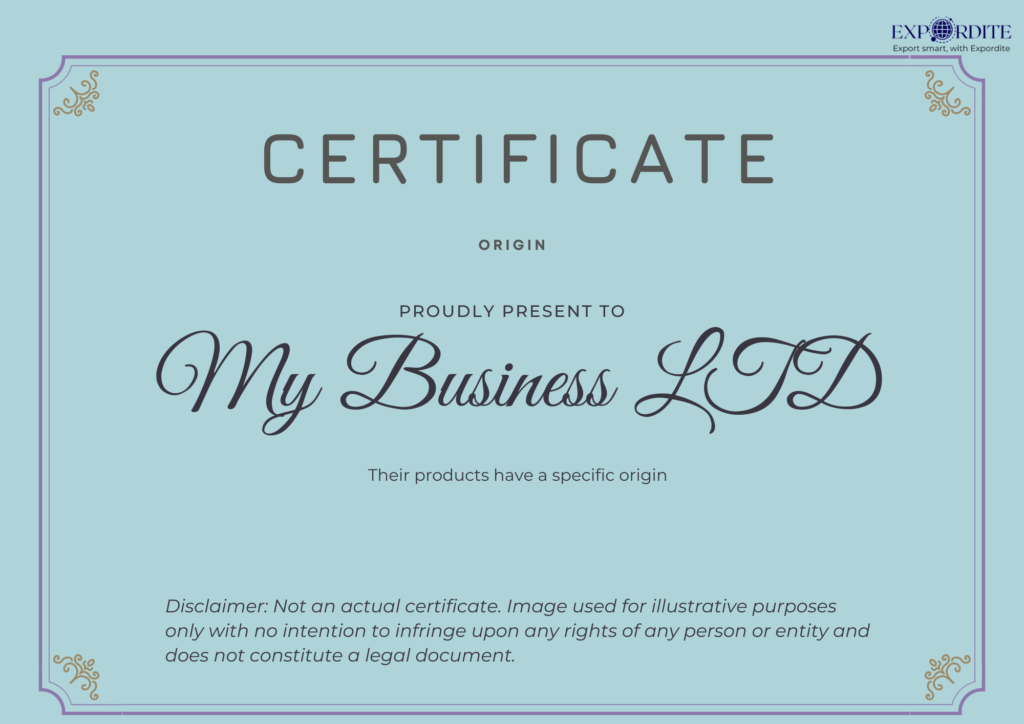
However, thanks to the trade deals the UK has in place, you can often claim preferential rates on your exports. Such rates would largely depend on the rules of origin applicable to your goods – in many cases, you may require a certificate of origin confirming that your goods are made in the UK, with materials originating from the UK.
Part 2 of my recap will be available to email subscribers only. Sign up today for exclusive insights!



